
12 minute read
Rural
Recent Cattle Market Reports

LISMORE
ANOTHER successful Store/Fat sale was held at the Lismore Saleyards on Tuesday 8/2/22.
A good quality yarding of 700 head attracted great buyer competition from the Hunter Valley, New England and Queensland.
Most of the weaners were showing the benefi ts of the good season showing freshness and weight.
The sale kicked off with Paul and Helen McInnes’ Charolais feeder steers selling for $2630.
A heavy bullock weighing 1025kg returned $3774.
A good run of heavy Angus and Euro steers sold from $6.30 to $7.50 c/kg for pleasing returns of $1900 to $2218.
Lightweight weaners were scarce, most selling from $8.50 to $9.40/kg, $1400 to $1650.
Heifers sold to good rates with most returning $1600 to $1800.
Light heifers sold from $1,000 to $1400.
The cows and claves on offer were secondary quality and sold from $2400 to $3200.
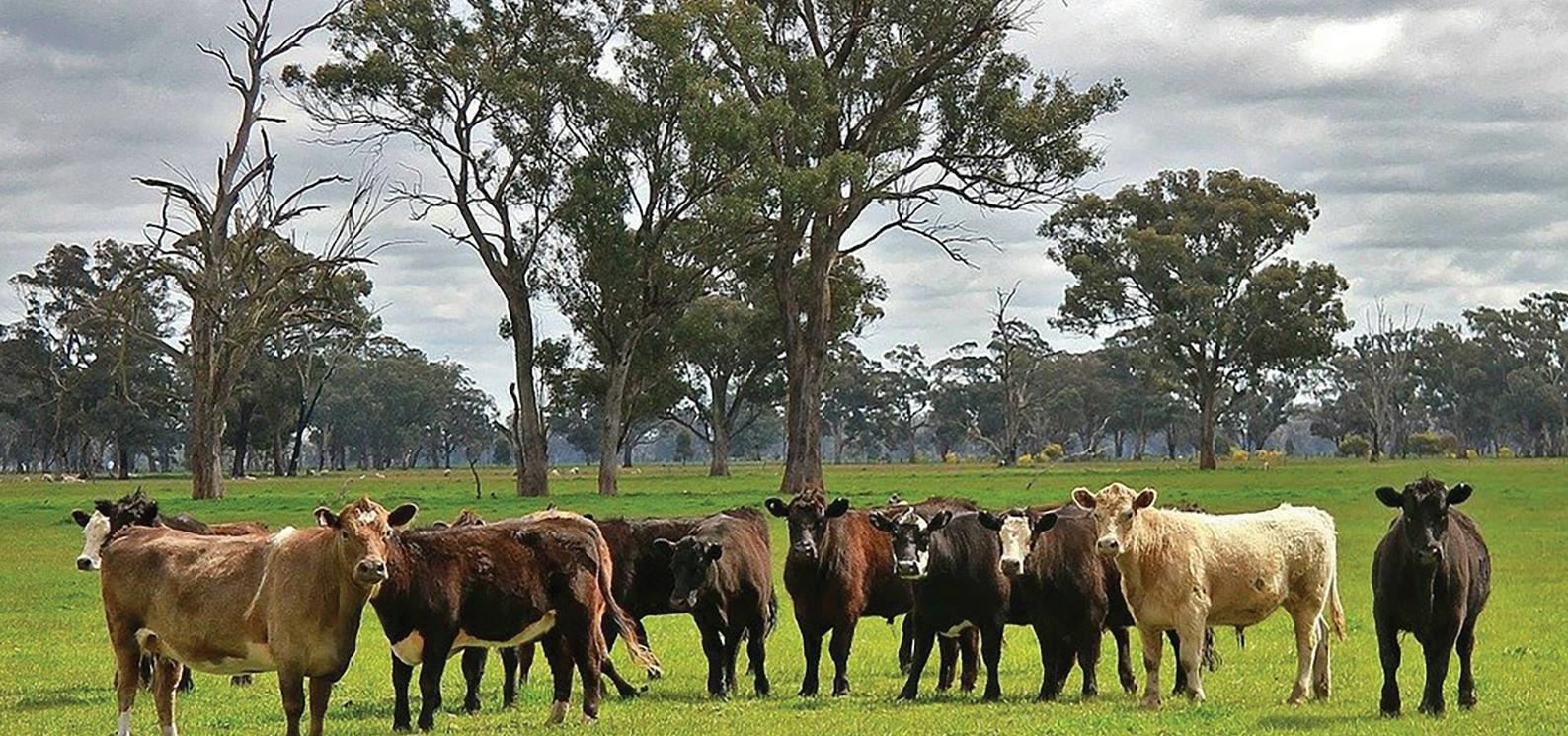
CASINO
AGENTS yarded a total of 1,054 head at the Northern Rivers Livestock Exchange regular prime sale on Wednesday 9 February. Young cattle were once again well supplied, and there was a good yarding of grown cattle. Quality of the young cattle was good with increased weight in the cattle this week, consisting mainly of well fi nished vealer steers and heifers taken directley off the cow. There was some good runs of well bred cattle, however there was also a fair number of cross bred steers and heifers through the sale
Cow prices were stronger this week averaging 346.9c/kg and reaching a top price of 402.2c/kg. Heifer prices also saw an increase with lighter heifers up to 250kg averaging 728.2c/kg and topping their category at 898.2c/kg. Heavier heifers over 250kg averaged 531.5c/kg and reached a top of 708.2c/kg.
Bull prices held fi rm with 20 head sold reaching a top of 325.0c/kg and average of 303.6c/kg and 698kg. Steer prices held fi rm to slightly dearer this week with lighter steers up to 250kg seeing an average of 752.9c/kg and top price of 1002.2c/kg. Heavier steers over 250kg averaged 603.6c/kg and topped their market at 770.0c/kg. A good number of bullocks sold on the day averaged 420.5c/kg.
Vealer prices saw a drop this week with 403 head yarded. Lighter vealer up to 250kg averaged 696.7c/ kg and reached a top of 870.2c/kg. Heavier vealer over 250kg averaged 637.7c/kg with a top price of 750.2c/kg.
Ray White Rural held a two day store and breeder sale on Friday 11 and Saturday 12 February at the NRLX. Fridays store sale saw 2,527 quality head go under the hammer. Steers topped their category at 990.2c/kg and averaged 716.0c/kg and 262kg. Heifers reached a top of 854.2c/kg and averaged 685.1c/kg and 245kg. Saturday’s breeder sale saw 878 breeder stock sold to a large crowd of buyers with cattle going as far as Western Queensland. Cows achieved a top return of $3,300.00 whilst Cows & Calves reached $4,600.00. PTIC Heifers saw a top price of $4,480.00.
Over the next week, four sales will held at the NRLX including Wednesday’s prime sale, McCormack and Ramsey & Bulmer’s joint store sale on Friday 18 February, the annual Yulgilbar Genetics Commercial female sale on Saturday 19 February and an additional George & Fuhrmann February store sale on Monday 21. Further bookings are welcome.
Brought to you by IAN WEIR PTY LTD
Brought to you by NRLX
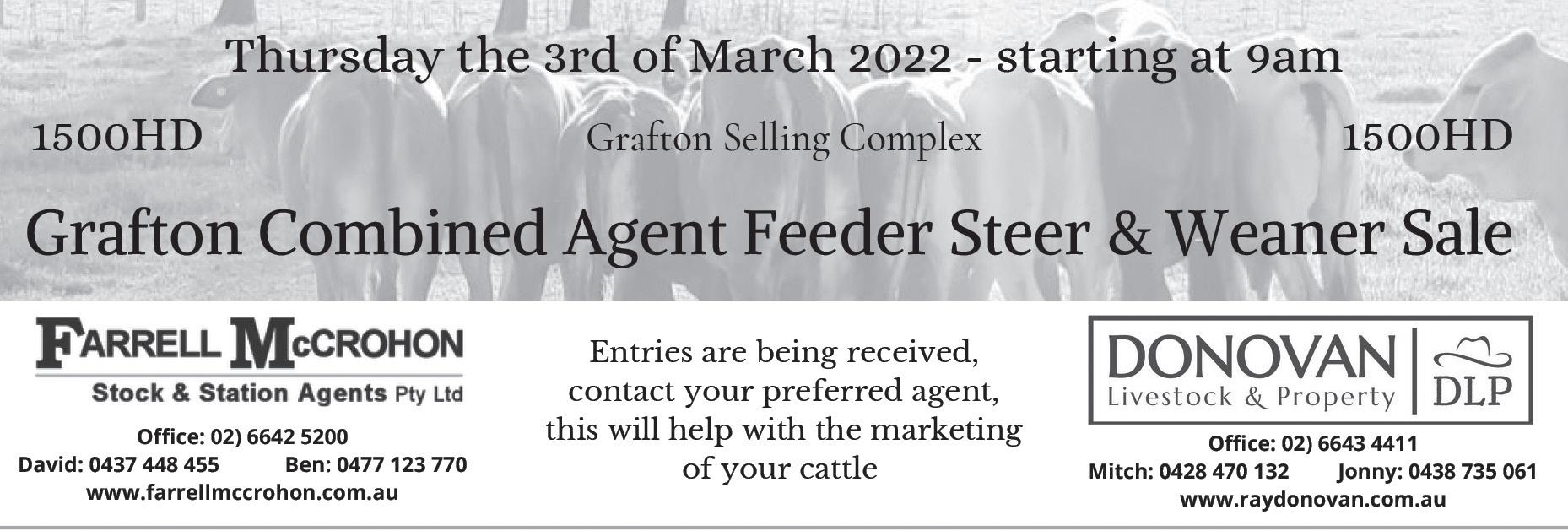


AWU COUNTING DOWN TO 28 APRIL WHEN FRUIT PICKERS GUARANTEED RATE BECOMES LAW
The Australian Workers’ Union is now counting down the days until April 28 when the new hourly minimum rate for fruit pickers will come into force Last November, the AWU secured an historic industrial win for fruit pickers by successfully arguing the Horticulture Award should be altered to ensure every worker is entitled to take home the minimum casual rate of pay, currently $25.41.
The Fair Work Commission has now announced the guaranteed hourly rate will come into force on April 28 and will be calculated daily as recommended by the AWU, and not per pay period as advocated by the farmers’ lobby.
“It’s fantastic that from April 28 fruit pickers will get some certainty about how much they should be legally paid for their labour — the union is counting the days,” said AWU National Secretary Daniel Walton.
“For too long the farmers’ lobby has seen fruit pickers as somehow beneath the usual standards offered to Australian workers. But the hard work of pickers deserves the same minimum wage dignity afforded to everyone else.
“We are grateful the Commission has ruled hourly rate earnings must be calculated daily. One of the great advantages of last year’s historic ruling were the clarity it provided. Fruit pickers — who often have limited English and information about Australian laws – will assess if they are being ripped off by their employer.
“Now at the end of each day every picker should be assured that their work netted at least $25.41 an hour. If not, their employer is stealing from them and breaking the law.
“It is deeply disappointing that the
to try and obfuscate the simplicity of the system by arguing that the calculation should be made per pay period. We are glad they were not successful. “This ruling is a huge advance for this industry and for all the farmers who are already doing the right thing.”
Dairy farmers respond to Woolworths milk price changes
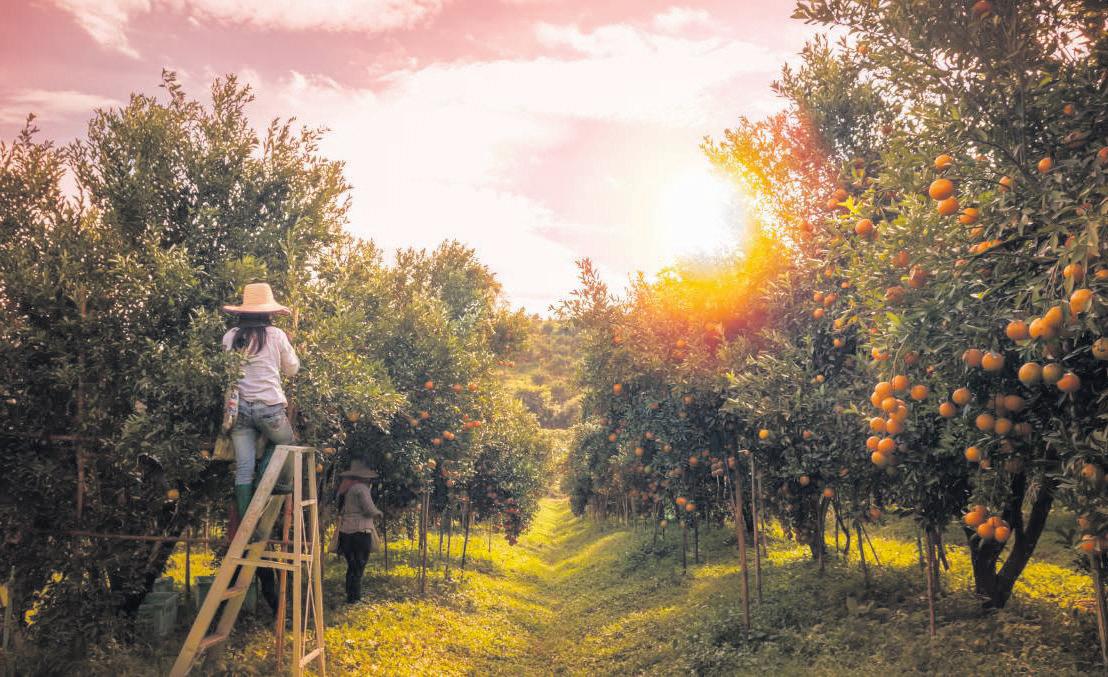
NSW Farmers Dairy Committee Chair Colin Thompson has thanked Woolworths for transparency on the removal of the drought levy, but says more needs to be done on delivering fair milk prices.
On Friday Woolworths wrote to farmers via milk processors advising the 10-cent per litre levy on own-brand milk – which it introduced in 2018 – would be removed at the end of June.
Mr Thompson said while dairy farmers were dual battle of dollara-litre milk and tough drought conditions, there was still a long way to go in rebuilding the industry.
“The irrational dollara-litre pricing model nearly killed the dairy industry, we cannot let that happen ever again,” Mr Thompson said.
“It’s starting to look like the big supermarkets and their customers understand the value of supporting our local dairy industry, but there is a degree of disappointment among dairy farmers that the drought levy was not rolled into the base price.
“Fair, market-based pricing that recognises the true cost of production is what dairy farmers need for a sustainable future.”
NSW Farmers recently announced it would ramp up dairy advocacy efforts with the creation of a new role, and Mr Thompson said they would continue to competition policy.
“NSW Farmers strongly advocated for the Dairy Code of Conduct that came into effect on January 1, 2020, and further strengthening of the code will ensure farmers continue to be treated fairly and equitably, while ensuring longevity and growth of a critical industry,” Mr Thompson said.
INCENTIVE FOR LOW-CARBON TIMBER
The Federal Government’s move to increase support for the use of low-carbon timber is good news for the building and construction sector and will support jobs and economic activity while reducing greenhouse emissions.
Master Builders Australia’s CEO, Denita Wawn said, “Today’s announcement of $300 million to incentivise the greater use of low carbon engineered wood products in commercial and medium density housing is a big pragmatic policy win for the building, construction and forest industries, consumers and the environment.”
“Master Builders Australia has called for measures that will assist the industry to make use of more sustainable building materials without imposing excessive costs on the industry or consumers,” she said.
“This new incentive announced by the Federal Government will help bring down the cost of construction, develop local capacity in lowcarbon timber product manufacture, deliver healthier buildings for our clients and the community,” Denita Wawn said.
“We have also jointly, with the Australian Products Association, called for measures to tackle a forecast a major shortfall of timber housing frames in the next decade and this measure will have addressing this challenge,” she said.
“It is these kinds of innovative and practical solutions that produce winwin solutions that mean that builders and consumers can choose more sustainable building materials and healthier buildings without also choosing to take on prohibitive additional costs,” Denita
Wawn said.
Coraki Rural & Hardware Supplies
102-104 Queen Elizabeth Drive CORAKI
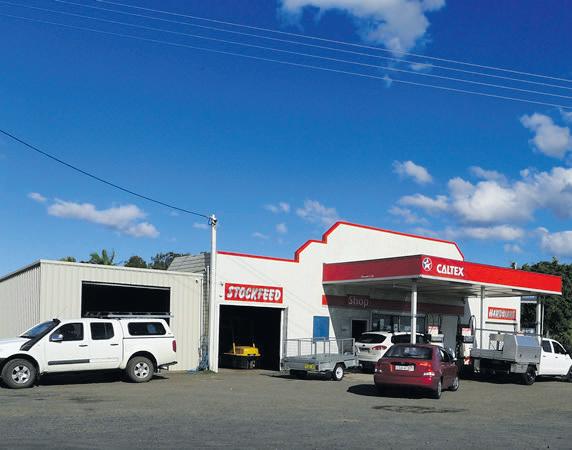
SHIPPING
CONTAINERS

• 20ft • 40ft Storage!
Best Prices Lease Or Buy On Or Off Site
BREWHOUSE VILLAGE
LOCALLY OWNED IN GRAFTON

HUB TO SUPPORT REGIONAL SOILS CAPACITY
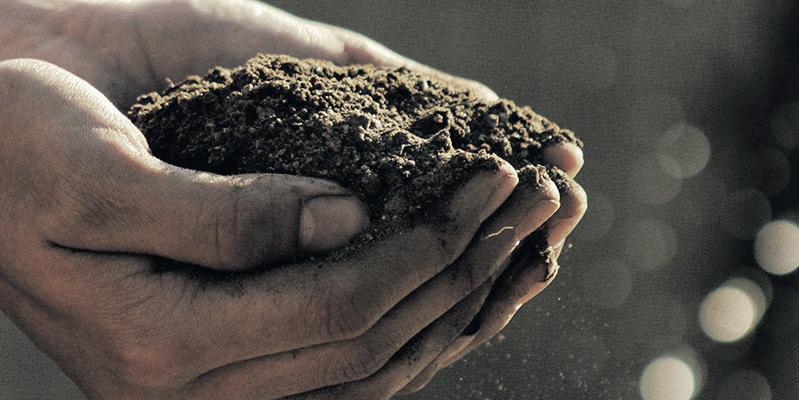
A new Regional Soil Coordinator will provide practical assistance to improve soil health and testing across Northern New South Wales and Southern Queensland, as part of a new $3 million Australian Government investment announced today.
The announcement means the Southern Queensland Northern New South Wales Drought Resilience Adoption and Innovation Hub can further its regional activities.
Hub Director Professor John McVeigh said the funding from the Building Landcare Community and Capacity Program would support the Hub’s overall goals with regard to boosting drought resilience and encouraging on-ground innovation.
“This funding will allow us, and the other seven drought and innovation hubs across the country, to provide down to earth support for our primary producers from Longreach to Narrabri,” Professor McVeigh said.
This new Hub project will deliver a Soil Extension Plan, including identifying gaps in current services and barriers to the adoption of improved soil practices.
“As with all of the Hub activities, we will focus on supporting and bringing together those already working to boost soil conservation efforts in Northern New South Wales and Southern Queensland,” Professor McVeigh said.
“This new role will provide leadership, facilitation and support to Smart Farm Soil Soil Extension Activity grantees to deliver services in the region.
“The new Regional Soil Coordinator will connect those working on soils grants with researchers and key soil projects within our region, helping to drive national priorities and services, and reporting to the Australian Government.”
Professor McVeigh said a soil extension network would be established, to provide advice, connections, information, tools and other support.
“The sustainability of the soils in Southern Queensland and Northern New South Wales is a key factor in the longterm viability of not just agriculture, but landscapes and communities as well,” Professor McVeigh said.
“Increasing the awareness, understanding, skills and adoption of sustainable soil best management practices (including soil testing, interpretation and monitoring) will contribute to increasing soil health across the SQNNSW Hub region.
“This includes focussing on technology use in soil quality enhancement and building understandings of sustainable soil processes for various farming systems.”
The Southern Queensland and Northern New South Wales Drought Resilience Adoption and Innovation Hub has received funding from the Australian Government’s Future Drought Fund. Find out more at usq.edu.au/ sqnnswhub.
APPLICATIONS OPEN FOR NEXT ROUND OF MLA AMBASSADORS TRAINING

Meat & Livestock Australia (MLA) is calling on people working across the red meat supply chain with a passion for telling the great stories about the industry to apply for the next round of the Ambassadors for the Red Meat Industry program.
MLA General Manager of Communications, two online workshops for the new program were very successful, with 25 people honing their skills as industry ambassadors.
“We have had people from across Australia and across the supply chain take part, including producers, chefs, stock agents, butchers and traders, among many other professions,” Ms Broad said.
“The participants have taken part in shared values training, media training and social media training, which has given them the skills to be an effective voice for the red meat industry.
“We strongly encourage anyone working in the red meat industry who wants to boost their skills in communication, building trust and engagement to apply for this program.”
Pending any COVID-19 related restrictions, the 2022 workshops will be held in-person at locations based on where the successful applicants are from.
The Ambassadors program is an intensive development opportunity offering participants training in community engagement, communication through media and social media, and building trust with consumers.
The program is designed for producers and people in industry support roles throughout the red meat supply chain, with successful participants joining MLA’s alumni of ambassadors across Australia.
Ambassadors program participant Emma Fessey, Brewarrina, NSW, said the Ambassadors program was a valuable opportunity to develop her skills and share her evolving journey and experiences across the red meat industry with others.
Emma works for AuctionsPlus, helps out on her family’s sheep, cattle and goat property and is aiming to compete in the rowing at the 2024 Paris Olympics.
“As an athlete who sees red meat as an integral part of my diet and to high performance, I enjoy discussing the associated with red meat consumption and importantly, the journey of ‘paddock to plate’ as many consumers can be unaware of the process.
“This is something I am passionate about sharing and educating others about.
“The workshop equipped me with important communication and interpersonal skills to be able to lead open and honest conversations about the many dynamic nuances of the red meat industry.
“From these learnings, ability to acknowledge and understand concerns of others and how to navigate those to ultimately generate a more comprehensive understanding of our industry for those both inside and outside the red meat sector.”
The 2022 Ambassadors workshops will be held on the following dates: • 8-9 February, plus a follow-up hour on 10 Feb • 8-9 March, plus a follow-up hour on 10 Mar • 22-23 March, plus a follow-up hour on 24 Mar • 6-7 April, plus a follow-up hour on 8 April • 25-26 May, plus a follow-up hour on 27 May
We Deliver












